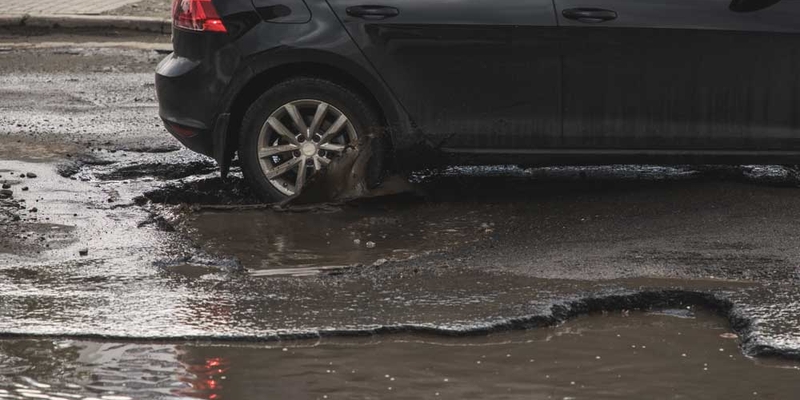
If you are not redirected within 30 seconds, please click here to continue.
Samedi: 10h – 16h HAE

If you are not redirected within 30 seconds, please click here to continue.
If you are not redirected within 30 seconds, please click here to continue.
Poorly Maintained Roads Are Costing Canadians $3B Annually: CAA Study

Table of Contents
- Canadian drivers incur an average of $126 in extra maintenance costs annually due to the poor quality of roads.
- Quebec drivers pay the most each year; drivers in Alberta pay the least amount.
- 52% of Canadian roads are considered to be in “good” or “very good” condition, 28% are considered to be “fair”, and 15% are in “poor” or “very poor” condition.
Owning and driving a vehicle is not an inexpensive proposition. Think of the costs involved: purchasing a new or used vehicle, registering it, getting car insurance and conducting regular maintenance on your wheels to keep it roadworthy.
On that latter point, a new, nationwide study on the impact poor road conditions have on our vehicles by CAA finds Canucks are incurring an average of $126 in extra maintenance costs each year. Over a 10-year lifespan of a car, that equates to more than $1,250 drivers shell out in higher vehicle operating and repair costs due to poor road infrastructure because of things like potholes and cracked pavement that can potentially damage our vehicles.
Those costs vary by province, the study finds. Quebeckers are subject to an average annual cost of $258 (the highest in the country), followed by Prince Edward Island ($164) and Nova Scotia ($137) – all above the national average. On the low end of the scale, drivers in Alberta pay the least amount each year ($64), New Brunswick follows at $80 per year, and motorists in Ontario pay $88 annually.
Tally it up, and Canadians pay $3 billion every year in higher vehicle operating costs because of the state of our roads, CAA says.
“Canada’s roads are vital for commuters, business, and connecting communities,” says Ian Jack, vice-president of public affairs, CAA National, in a press release. “This study shows for the first time the hidden cost to drivers of below-average roads. And it demonstrates that governments would save money in the long run if they brought roads up to – not perfection – but a good standard. That should be attainable.”
Using data from Statistics Canada’s Core Public Infrastructure survey, which is based on self-reporting data from provinces and municipalities, CAA’s “Cost of Poor Roads in Canada” report states 52% of Canadian roads are considered to be in “good” or “very good” condition. Another 28% are considered to be “fair”, and 15% are in “poor” or “very poor” condition.
The data also shows 1% of Ontario highways are considered to be “very poor”, 7% are “poor”, 21% are “fair”, 62% are “good”, and 9% “very good”. In Alberta, no highways are considered to be in “very poor” condition (0%), 4% are “poor”, 37% are “fair”, 48% are “good”, and 11% are “very good”.
The CAA study also factors in vehicle operating costs, vehicle types, and kilometres travelled and how poorly maintained roads affect the price of fuel, tires, repairs and maintenance and vehicle depreciation. It did not include things such as the cost of car insurance, licensing and registration, or the expense of financing a vehicle.
This latest study comes before CAA South Central Ontario’s annual Worst Roads report, which encourages Ontario drivers to vote on which roads in the province are the most unpleasant to travel. The results of that survey are expected to be made publicly available in the coming days.
Don't waste time calling around for auto insurance
Use RATESDOTCA to shop around, and compare multiple quotes at the same time.
Get money-saving tips in your inbox.
Stay on top of personal finance tips from our money experts!









